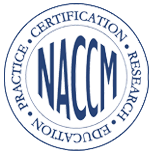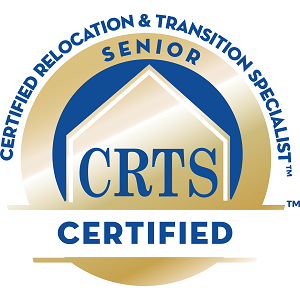Immunization Awareness Month: Recommended Senior Immunizations
During Immunization Awareness Month, we focus extra on seniors and their unique needs as a diverse and vulnerable population.
The FDA and CDC officially recognize National Immunization Awareness Month (NAIM) as a critical public health campaign to help people of all ages realize the importance and impact immunization has on everyone’s well-being.
While the conversation around immunizations tends to center around children, immunization protection affects everyone in every stage of life.
What is an Immunization?
Immunization is a process people’s bodies undergo to become resistant to a particular disease. Immunization is used as a synonym for vaccine or inoculation.
Vaccines, or immunizations, are injections or sprays introducing pathogens to the body to stimulate its immune response. As the immune system learns the unique “code” of the virus, it becomes better equipped to fend it off in the event of future exposure.
Take the COVID-19 immunization, for example. By injecting harmless “pieces” of the coronavirus into the bloodstream, the cells learn how to recognize the protein if it appears in the future. Then, it can quickly create disease-fighting immune cells that know how to fight COVID-19, reducing the risk of hospitalization and severe illness.
Some immunizations work a bit differently; they may contain weakened versions of a live virus that helps the body learn its genetic code to fight against it in the future. Others may contain extracted parts of a virus to teach the body how to fend off future exposure.
Why Immunizations and Spreading Awareness is Important
Science has evolved to the point that we can protect ourselves and our loved ones from previously unbeatable conditions thanks to immunizations. Immunizations save lives. They prevent unnecessary illness, injury, and preventable deaths.
Diseases like polio and meningitis have been eradicated by vaccines, though lower vaccination rates in recent years have caused a resurgence in some areas.
Understanding the benefits of immunizations is vital because it helps defend ourselves and protect some of the most vulnerable people in our communities – including seniors. Seniors are often at the highest risk of developing severe health complications from diseases and infections.
Getting immunized and encouraging aging loved ones to do the same can prevent them from becoming ill or facing a life-threatening disease.
Recommended Immunizations for Seniors
COVID-19 Vaccination
Children as young as five months old can receive the coronavirus vaccination. Research shows that older adults (50 and up) are more likely to be hospitalized and die from complications related to COVID-19.
Being fully vaccinated against COVID-19 also requires a booster shot, which helps increase and prolong protection. Seniors and people with underlying health conditions can receive up to 2 boosters safely. Another booster shot is expected to be available in September or October this year, so remind the seniors in your life to get another booster if needed.
Influenza Vaccine (Flu Shot)
Influenza infects hundreds of thousands of people worldwide each year. The virus also mutates (changes), so you need annual immunization to ensure you’re protected against the most recent strain of the flu.
It’s recommended that adults 65 and over receive one of two flu immunizations: a high-dose flu shot or adjuvanted flu shot. These create a stronger immune response, boosting their protection. Although flu shots don’t always prevent getting sick, they do prevent cases of severe illness that require hospitalization in most cases.
Pneumonia Immunization
Adults 65 and above can receive a one-time pneumonia vaccine that helps protect them against this respiratory infection. The pneumonia vaccine is 60% to 70% effective at preventing the disease, and even patients who fall ill experience milder symptoms and less risk of serious complications.
Shingles Vaccine
Doctors recommend that adults 50 and older receive a vaccine against shingles, a viral infection similar to chicken pox that causes a painful, blistering rash along one side of the body.
Shingles can also lead to post-herpetic neuralgia, a condition that causes chronic, severe pain where the rash initially developed.
Seniors need to receive two shingles immunizations — the second shot is administered six months after the first.
Tetanus, Diphtheria and Pertussis (Tdap)
The Tdap shot protects against several infections in one. If your senior loved one has not received a tetanus shot within the last ten years, they should be given a new one at their next doctor’s appointment.
Tetanus is a bacterial disease caused by exposure to tetanus bacteria. Tetanus often comes through dirt, soil, manure, and rusted metals. Many adults have never had a combined shot, which leaves them vulnerable to all three infections.
Diphtheria is an infection that affects the lining of the respiratory system. The bacteria entering a person’s bloodstream can lead to severe complications with major organs, such as the heart and liver.
Pertussis also affects the respiratory system, and it causes severe coughing that can lead to significant breathing impairments, especially among seniors who already have lung problems or muscle atrophy.
The Tdap immunization is 95% effective against tetanus and diphtheria and 70% against pertussis.
Why Keeping Immunizations Up-to-Date is Critical for Seniors
Keeping all immunizations up-to-date ensures seniors are protected against a variety of highly dangerous and preventable illnesses. Many overlook the long-term and life-long health complications that arise from these diseases.
Seniors with underlying health problems or existing medical conditions may also experience more severe health complications from illnesses that only cause mild symptoms in younger people.
Talk to your loved one’s doctor about their current immunizations, and make sure you always stay up-to-date with their vaccines.
How Homecare Can Help Ensure Immunization Stays Up-to-Date
Homecare provides immunizations at home for seniors who have limited mobility or face a greater risk of going out during times of high infection levels.
A Registered Nurse can also provide home visits to give seniors and caregivers the most up-to-date information about immunizations and senior safety.
Reflections Management and Care is here for you and your loved one. Get in touch with us today to learn more about senior immunizations and our senior homecare services.














